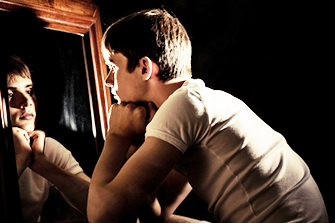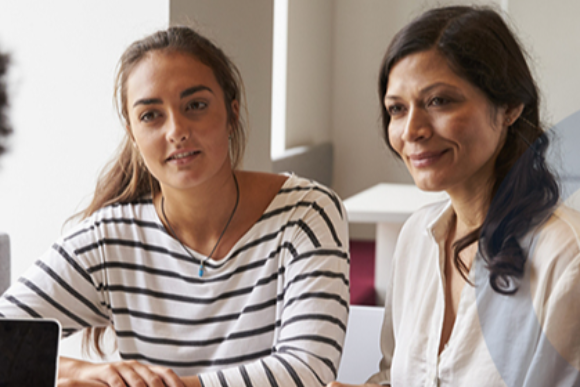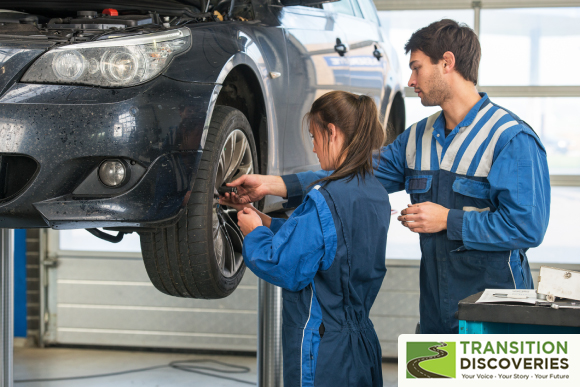Being Self-Aware


Ideally, being self-aware results in yute…
- Explaining dem wants an’ needs tuh others
- Better understanding dem strengths an’ abilities
- Solving problems, setting goals, an’ accepting consequences
- Increasing dem trust in abilities, qualities an’ judgement
- Strengthening dem ability tuh speak up fuhwuh dem need
- Accepting differences an’ understanding de needs uh others
How Cuh Adults Support Students Build Self-Awareness?
Adults cuh support de development uh self-awareness in students wid disabilities by utilizing evidence-based strategies including:
- Teaching de students tuh lead dem Individualized Education Plan (IEP) meetings
- Completing age-appropriate transition assessments
- Engaging students in honest an’ respectful discussion ‘bout dem self-determination
- Assessment responses

What Are Ways Tuh Support De Development Uh Self-Awareness Skills?
When adults use evidence-based practices tuh support de growth uh self- awareness skills in students wid disabilities, dem should:

Support de Student
Expect an’ support students tuhmek many routine choices fuh themselves through de course of uh school day.

Teach de Student
Teach self-awareness strategies

Ensure Communication
Ensure all students got uh functional communication system

Work Together
Work collaboratively wid students tuh facilitate achievement uh dem goals
Featured Resources
De PA Community pon Transition offers resources pon uh variety uh topics, all focused pon improving outcomes fuh students wid disabilities.

Resources
Interested in more resources ‘bout Self-Awareness?
EXPLORE MORE

Latest Events
Check out de calendar fuh events dat might interest you.
EXPLORE MORE
Want tuh Learn More?
Check out de Zarrow Center’s Me! Lessons.
Uh set uh lessons fuh teaching self-awareness
SEE FAQS







